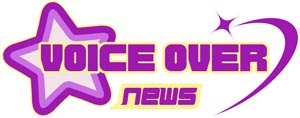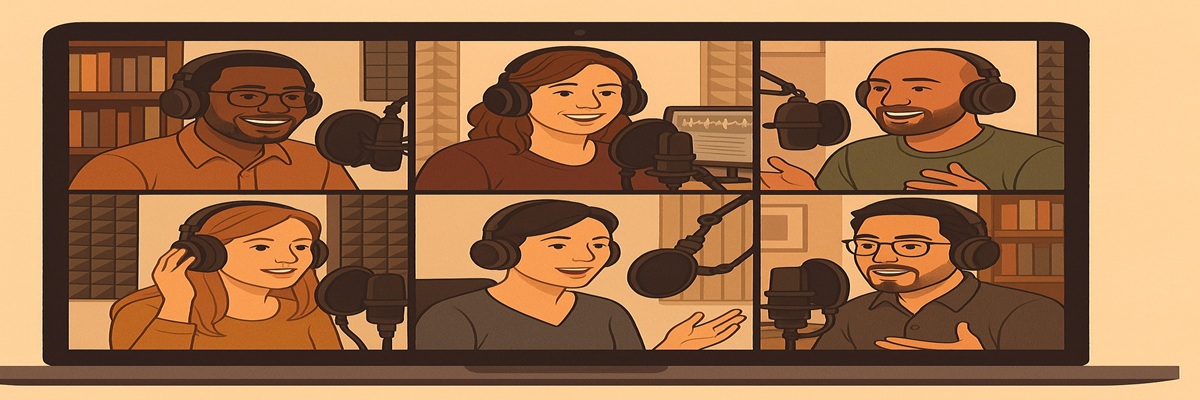In July 2025, the audiobook industry will mark a significant moment with the launch of the first-ever PANAcon, a virtual conference organized by the Professional Audiobook Narrators Association (PANA). Set to take place on July 26, this milestone event is more than just a networking opportunity — it represents a turning point in how audiobook narration is recognized, discussed, and developed as a professional art form.
With the surge in audiobook production, the expansion of global distribution platforms, and rising interest in voice-first storytelling, PANAcon arrives at a time when narrators are seeking stronger community, clearer advocacy, and access to real-time industry insight. This conference aims to deliver on all three.
Establishing PANA as a Professional Anchor
The Professional Audiobook Narrators Association was established to provide a centralized, independent space for audiobook narrators to collaborate, advocate, and build standards. Unlike other voiceover sectors that may fall under broader union protections, audiobook narrators often navigate freelance contracts, isolated work environments, and rapidly changing expectations with minimal infrastructure to support them.
PANA seeks to address that void. The association has grown steadily over the last few years, driven by a collective desire for recognition and fairness in areas ranging from casting practices to narrator rates, production timelines, and attribution. PANAcon is the association’s largest initiative to date — a multi-day digital gathering designed by narrators, for narrators.
A Conference Designed for the Realities of Narration Work
Unlike in-person voiceover conventions that often cater to the broader entertainment industry, PANAcon is built around the practical realities of audiobook professionals. Held virtually, the format accommodates narrators working across time zones, recording schedules, and geographic regions.
The main event on July 26 will feature a full day of panels, live Q&As, genre-specific discussions, and educational sessions. Topics include performance technique, home studio optimization, publisher relationships, rights negotiation, and the increasing role of narrators as co-producers in the audiobook process.
Leading up to the event, PANA will also host a week of adjacent experiences — including community socials in New York and Los Angeles, an open mic spoken-word night, and speed networking sessions with casting directors and production teams.
For many narrators, especially those just entering the industry or working remotely, this event offers their first real chance to connect directly with peers and industry stakeholders.
Building Community in an Isolated Industry
Audiobook narration is, by nature, a solitary craft. Most performers work from home studios, recording for hours at a time without a director present. While this independence provides flexibility, it can also lead to isolation, burnout, and a lack of career visibility.
PANAcon’s mission is to help narrators bridge that gap — not only by exchanging technical advice, but by building professional community. Peer mentorship, shared resources, and honest discussions about workload and compensation are all part of the agenda.
For veterans of the industry, PANAcon offers a chance to give back and shape the future of narration. For newer voices, it’s a rare opportunity to build industry literacy, avoid early career pitfalls, and find their place in a fast-growing market.
Navigating Industry Growth and Shifting Expectations
The demand for audiobooks has increased sharply over the past decade. More publishers are producing audio editions alongside print releases, and streaming platforms have further broadened listener access. With this growth comes new pressure on narrators — faster turnaround times, higher production quality, and expanded promotional responsibilities.
PANAcon is positioned to help narrators understand and respond to these shifting demands. The programming covers not only performance technique, but also the logistics of running a sustainable narration business. This includes file delivery standards, rates negotiation, union updates, and branding strategies for narrators who market themselves directly to authors and indie publishers.
As more narrators transition into hybrid roles that include directing, producing, and consulting, these conversations are no longer optional — they’re essential for staying competitive.
Casting, Inclusion, and the Future of Audiobook Representation
One of the most anticipated panels at PANAcon 2025 is a roundtable on casting ethics and inclusion. As the audiobook market diversifies, questions around representation have become more urgent. Who gets cast for which roles? How do producers address authenticity when dealing with dialects, cultures, and lived experiences that differ from those of the narrator?
These discussions are difficult but necessary, and PANAcon provides a dedicated, non-commercial space to have them. By including casting professionals, authors, and narrators of varying backgrounds, the conference aims to foster open dialogue that pushes the industry toward more inclusive practices — without resorting to tokenism or surface-level solutions.
The Value of Narrators in the Age of Automation
While PANAcon is not centered on the topic of AI-generated narration, the backdrop of this technology looms over much of the industry. With the rise of synthetic voices and text-to-speech options, narrators are increasingly asked to justify their value — not just in terms of vocal performance, but as collaborators who elevate a story beyond its written form.
PANA’s position has always been clear: narration is an interpretive art. A human voice does more than deliver words — it creates rhythm, tone, emotional tension, and character distinctiveness. PANAcon builds on this philosophy by equipping narrators with tools to thrive in a changing landscape while maintaining the integrity of their craft.
Setting a New Standard for Audiobook Events
PANAcon is not the first event for audiobook professionals, but it is the first to emerge directly from within the narrator community — rather than being organized by publishers or third-party vendors. That independence is what gives the event its unique tone and purpose.
By keeping its focus squarely on the needs of working narrators — and not just on product promotion or sales strategy — the event stands to become a benchmark in the industry. It reaffirms the idea that audiobook narration is not just a job, but a career worthy of investment, leadership, and community.
PANAcon’s Long-Term Impact
If PANAcon succeeds, it could set a precedent for how other parts of the voiceover and publishing industries organize themselves. From establishing best practices to fostering mentorship, the event has the potential to shape both individual careers and broader industry dynamics.
More importantly, it signals to narrators — many of whom work alone, behind the scenes — that they are not invisible, and that their voices matter not just in stories, but in the business that supports them.
In a profession where you rarely meet your peers, PANAcon 2025 offers more than panels and workshops. It offers belonging — and a shared sense of direction for where audiobook narration goes next.

